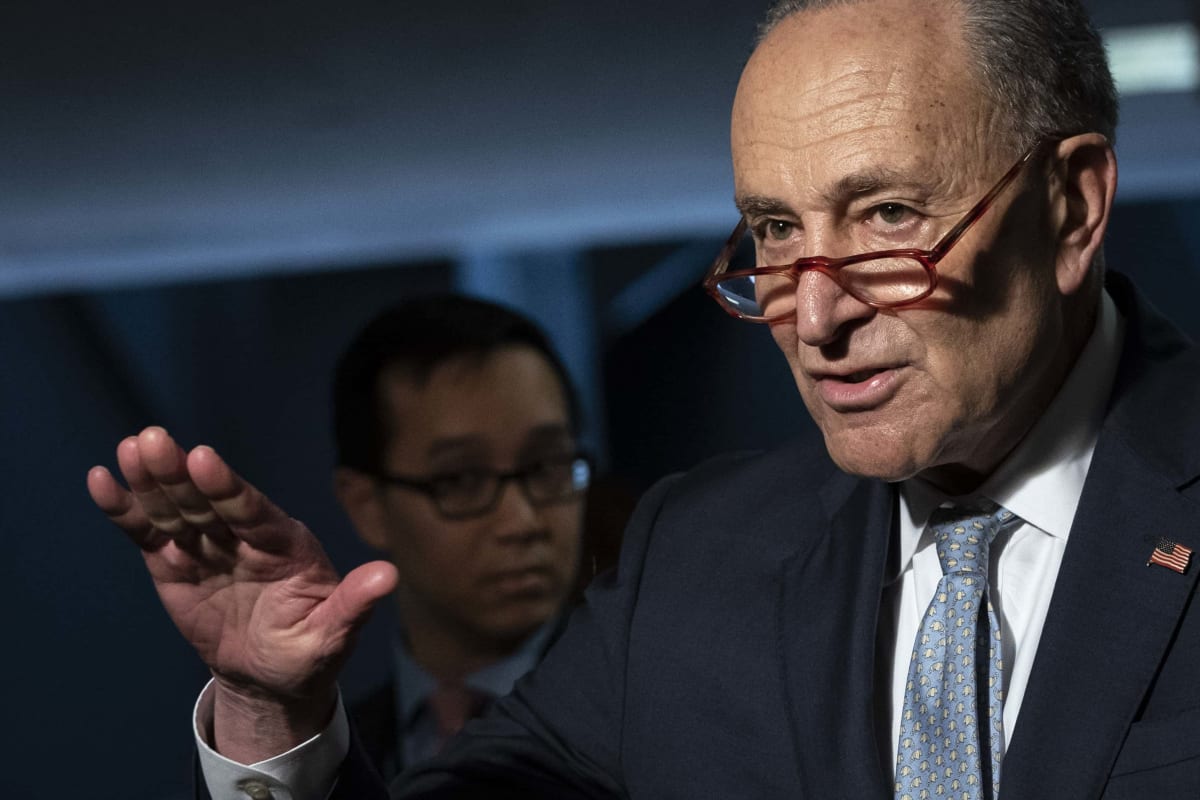Impeaching Trump 'impossible', agree Senators as they push censure motion but will that bar him from office?

On Tuesday, January 26, Republican Senator Rand Paul made a motion on the Senate floor that Trump’s trial in February violates the US Constitution. 17 Republicans would need to vote to convict Trump on an impeachment charge, but only five Republican lawmakers joined Democrats in the Senate to reject the move. Suddenly, it is becoming clear to many that Trump's second impeachment trial will probably end in an acquittal, which brings one option to the fore — censuring Trump.
Republican Senator Susan Collins of Maine, who was one of the five GOP lawmakers to say the trial was constitutional, said on January 26, "I think it's pretty obvious from the vote today that it is extraordinarily unlikely that he will be convicted. Just do the math." On January 27, she said that "it seems to me that there is some value in looking at an alternative to proceeding with the trial… I realize the two leaders have already locked in a schedule. But it seems to me there is benefit in looking at an alternative that might be able to garner bipartisan support. I don't know whether it would or not."

Similarly, Democrat Senator Tim Kaine of Virginia is also pitching the option to censure Trump saying that it may be better than going through an impeachment trial. "I think there is a need for some accountability and some consequences and I think many Republicans, if you look at the words they've used about what happened on Jan. 6 and the President's role in it, they've essentially stated that," Kaine reportedly said. "So if we could do something like this and have it be bipartisan and thereby potentially avoid the trial, I think that would be beneficial but we're not there yet."
If Trump were impeached, he would be automatically barred from holding office in the future. But since the Senate cannot reach the required count of votes, it is becoming increasingly clear that they might have to resort to an alternative method. So now the question arises will censuring Trump in lieu of impeachment trial bar him from office?

Since only five Republicans voted with Democrats against an attempt by Paul to declare the proceedings 'unconstitutional' as Trump is now a private citizen, it is proved that there won't be enough to convict Trump at the end of the trail anyway since it would take a two-thirds majority to convict the former president. This could allow the chamber to then vote to bar him from ever seeking office again. “The vote on the Paul motion yesterday was completely clarifying that we’re not going to get near 67,” Kaine said. Kaine added a censure resolution would be a better route than continuing with a trial that threatens to crowd out President Joe Biden's Covid relief package and other agendas. Censure resolutions against presidents do not have the force of law but are a strong reprimand from one or both houses of Congress. At this point, it might be a stretch to presume that censuring will ensure Trump is barred from holding office in the future, but Section 3 of the 14th Amendment hints that he might have fewer chances.
That section reads: “No person shall be a Senator or Representative in Congress, or elector of President and Vice-President, or hold any office, civil or military, under the United States, or under any state, who, having previously taken an oath, as a member of Congress, or as an officer of the United States, or as a member of any State legislature, or as an executive or judicial officer of any State, to support the Constitution of the United States, shall have engaged in insurrection or rebellion against the same, or given aid or comfort to the enemies thereof.”
It can't be said whether a trial can be short-circuited now that the House has transmitted the article of impeachment to the Senate. “My understanding is that once the article comes over here we’re sort of on autopilot for the trial,” Senator John Cornyn of Texas, a member of Mitch McConnell’s leadership team said. “So I’m not sure that’s an option anymore.”
However, Senate Majority Leader Chuck Schumer insists that Donald Trump's impeachment trial will still take place regardless of Tuesday's vote in the Senate showing that the chamber is far short of the 67 votes needed to convict the former president. "I would simply say to all of my colleagues, make no mistake, there will be a trial," the top Democrat in the chamber emphasized Wednesday, January 27, 2021, in a speech on the Senate floor. "The evidence against the former president will be presented in living color for the nation and every one of us to see once again and no one will be able to avert their gaze from what Mr. Trump said and did and the consequences of his actions."

A group of House Republicans previously proposed their own censure resolution. “Both Democrat and Republican Members of the U.S. Senate are convinced that the House’s impeachment efforts will almost certainly result in a second acquittal of President Trump, which would even further divide and inflame tensions in our nation,” they said in a joint statement. Pennsylvania Republican Brian Fitzpatrick, Tom Reed of New York, Young Kim of California, Fred Upton and Peter Meijer of Michigan and John Curtis of Utah were the six Republicans.










